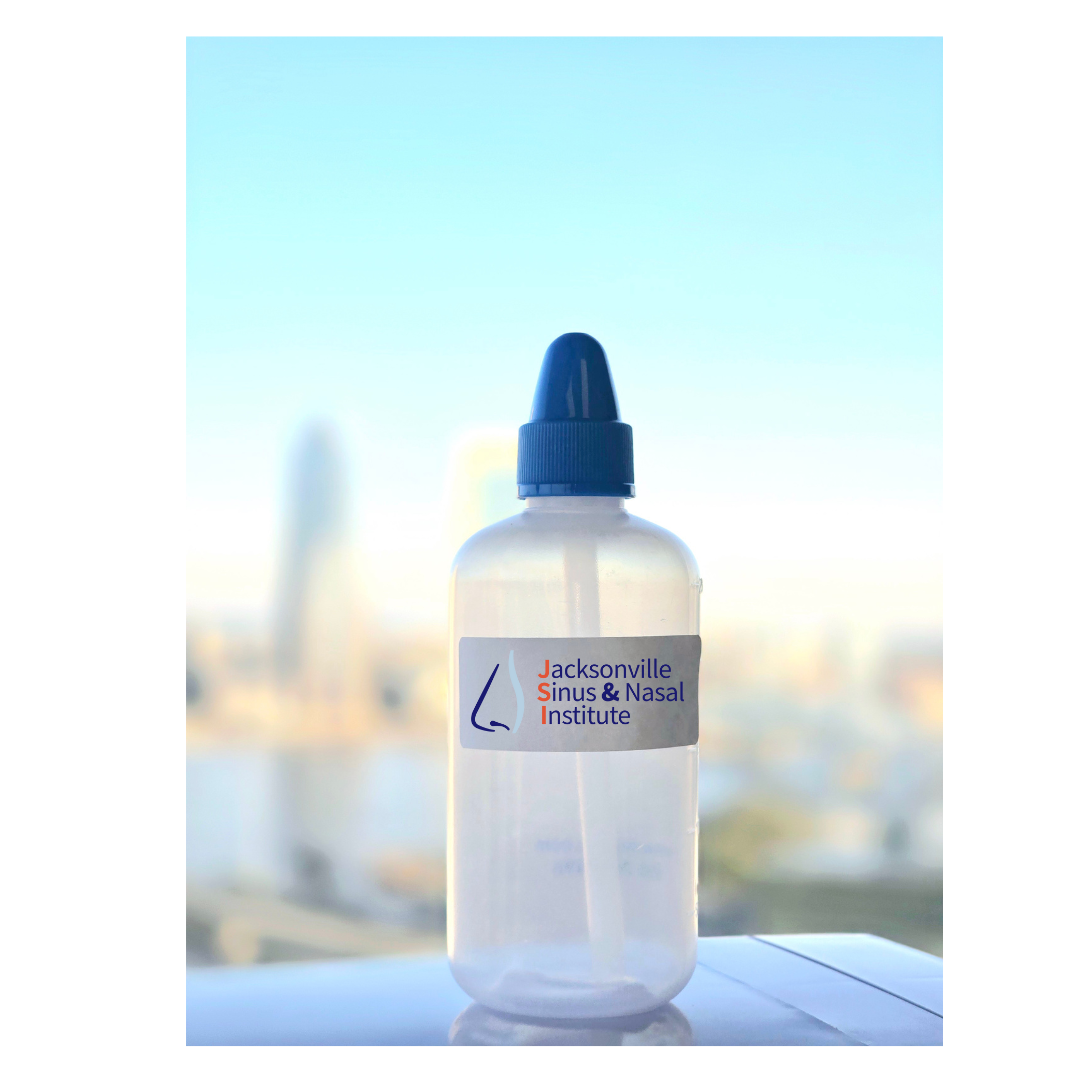Treatments for Nasal Obstruction
Having persistent nasal congestion is no fun! It can be a distressing condition that affects individuals of all ages, causing difficulty in breathing, disrupted sleep, and reduced quality of life. Fortunately, there are several treatment options available to address nasal obstruction and provide relief. Read on to learn the different treatments available.
What is nasal obstruction?
Nasal obstruction refers to a condition where there is a blockage or narrowing of the nasal passages, making it difficult for air to pass through. This can lead to discomfort, difficulty breathing, and other symptoms that affect a person's quality of life.
Causes of nasal obstruction
There are several possible causes of nasal obstruction, including:
- Structural issues: Deviated septum, nasal polyps, and/or enlarged turbinates can physically block the nasal passages.
- Allergies: Seasonal or year-round allergies can cause inflammation and swelling in the nasal passages, leading to obstruction.
- Sinus infections: Infections in the sinuses can cause congestion and blockage of the nasal passages.
- Nasal congestion from a cold or flu: Viral infections can lead to nasal congestion and temporary obstruction.
Symptoms of nasal obstruction
Some common symptoms of nasal obstruction include:
- Persistent nasal congestion or stuffiness
- Difficulty breathing through the nose
- Snoring or mouth breathing during sleep
- Headaches or facial pain
- Postnasal drip
- Reduced sense of smell and taste
Non-surgical Treatments for Nasal Obstruction
When it comes to nasal obstruction, there are several non-surgical treatment options available to provide relief. These treatments can help alleviate congestion, improve breathing, and reduce other symptoms associated with nasal blockage. Here are a few commonly used non-surgical treatments for nasal obstruction:
Nasal irrigation and saline sprays
Nasal irrigation involves flushing the nasal passages with a saline solution to remove mucus and irritants. This can be done using a neti pot, squeeze bottle, or nasal irrigation device. Saline sprays, on the other hand, are pre-packaged saline solutions that can be easily sprayed into the nose. These treatments help moisturize the nasal passages, clear nasal congestion, and reduce inflammation.
Nasal corticosteroid sprays
Nasal corticosteroid sprays are commonly prescribed by doctors to reduce nasal inflammation and allergy symptoms. These sprays work by reducing the swelling in the nasal tissues, thereby opening the nasal passages and improving airflow. They are effective in treating chronic nasal congestion, allergies, and sinusitis.
Decongestants and antihistamines
These are over-the-counter medications that can provide temporary relief from nasal obstruction caused by allergies, colds, or sinus infections. Decongestants work constricting the blood vessels in the nasal passages, reducing swelling and congestion, and allowing easier breathing. Antihistamines, on the other hand, block the effects of histamine, a chemical released during an allergic reaction, thereby reducing nasal swelling and congestion.
It is important to note that decongestants are not recommended to be used for more than three consecutive days. Prolonged use can lead to a condition called rebound congestion, where the nasal passages become even more congested when the medication wears off. Additionally, decongestants may have side effects such as increased heart rate, elevated blood pressure, and dryness of the nasal passages.
Surgical Treatments for Nasal Obstruction
A variety of surgical procedures are performed to address nasal obstructions:
Septoplasty
This procedure corrects a deviated septum by straightening and repositioning the nasal septum in the middle of the nose.
Turbinate Reduction Surgery
Enlarged turbinates can obstruct the nasal passage and lead to difficulty breathing. Turbinate reduction surgery involves reducing the size of the turbinates or removing a portion to widen the nasal passage.
Nasal Valve Stenosis Repair
Nasal valve stenosis refers to a narrowing or collapse of the nasal valve area, which can cause significant nasal obstruction. Various surgical techniques can be used to repair nasal valve stenosis, including cartilage grafting or lateral wall suspension procedures. These procedures aim to reconstruct and support the nasal valve area, allowing for improved airflow and reduced nasal obstruction.
VivAer (Radiofrequency Remodeling of the Nasal Valves)
VivAer is a non-surgical treatment option that utilizes radiofrequency energy to remodel and improve the function of the nasal valves. The nasal valves play a crucial role in regulating airflow through the nose. By targeting these valves with controlled radiofrequency energy, VivAer aims to enhance their structural integrity and increase nasal airflow, thus reducing nasal obstruction symptoms.
LATERA (Nasal Valve Implants)
LATERA is a minimally invasive procedure that involves the placement of small nasal valve implants to support and improve nasal airflow. The implants are made of a biocompatible material that provides structural support to the nasal valves, thereby reducing nasal valve collapse and alleviating nasal obstruction symptoms.
It’s important to note that the most suitable treatment option for nasal obstruction may vary depending on the underlying cause and individual circumstances. Consulting with a qualified healthcare professional is essential to determine the most appropriate treatment plan for your specific condition.
Conclusion
Nasal obstruction is a common condition that can significantly impact a person’s quality of life. There are various treatments available to address nasal obstruction, depending on the underlying cause. Medications may be prescribed to relieve nasal congestion and inflammation. Nasal saline irrigation can help clear the nasal passages and reduce congestion. Surgical interventions may be recommended for structural issues causing nasal obstruction. In some cases, non-surgical procedures like radiofrequency, small nasal valve implants or balloon sinuplasty may be considered as minimally invasive options.
If you are experiencing chronic nasal obstruction symptoms, consult with a healthcare professional who can evaluate your condition and recommend the most appropriate treatment plan for you. By seeking proper diagnosis and exploring these treatment options, you can find relief from nasal obstruction and enjoy improved breathing.




EXCELLENCE IN EVERY SENSE
See a Sinus Specialist at Jacksonville Sinus & Nasal Institute today.
Contact Us
Address:
Jacksonville Sinus & Nasal Institute (JSI)
836 Prudential Dr Suite 1601, Jacksonville, FL 32207
Get Directions
Directions to Clinic:
Parking is free at P2 Parking at Baptist Health & Wolfson Children's P2 Garage Electric Vehicle Charging Station
Phone Number:
904 396 8060
Fax Number:
(904) 390-7385
Hours of Operation:
Monday – Friday: 7:30am – 3:30pm
Saturday & Sunday: Closed
Follow Us:
Stay connected with us by receiving our
email newsletter and blogs for the latest updates and health tips.
© 2025 Jacksonville Sinus & Nasal Institute. All rights reserved. Privacy Policy | Terms of Use | HIPAA Policy



